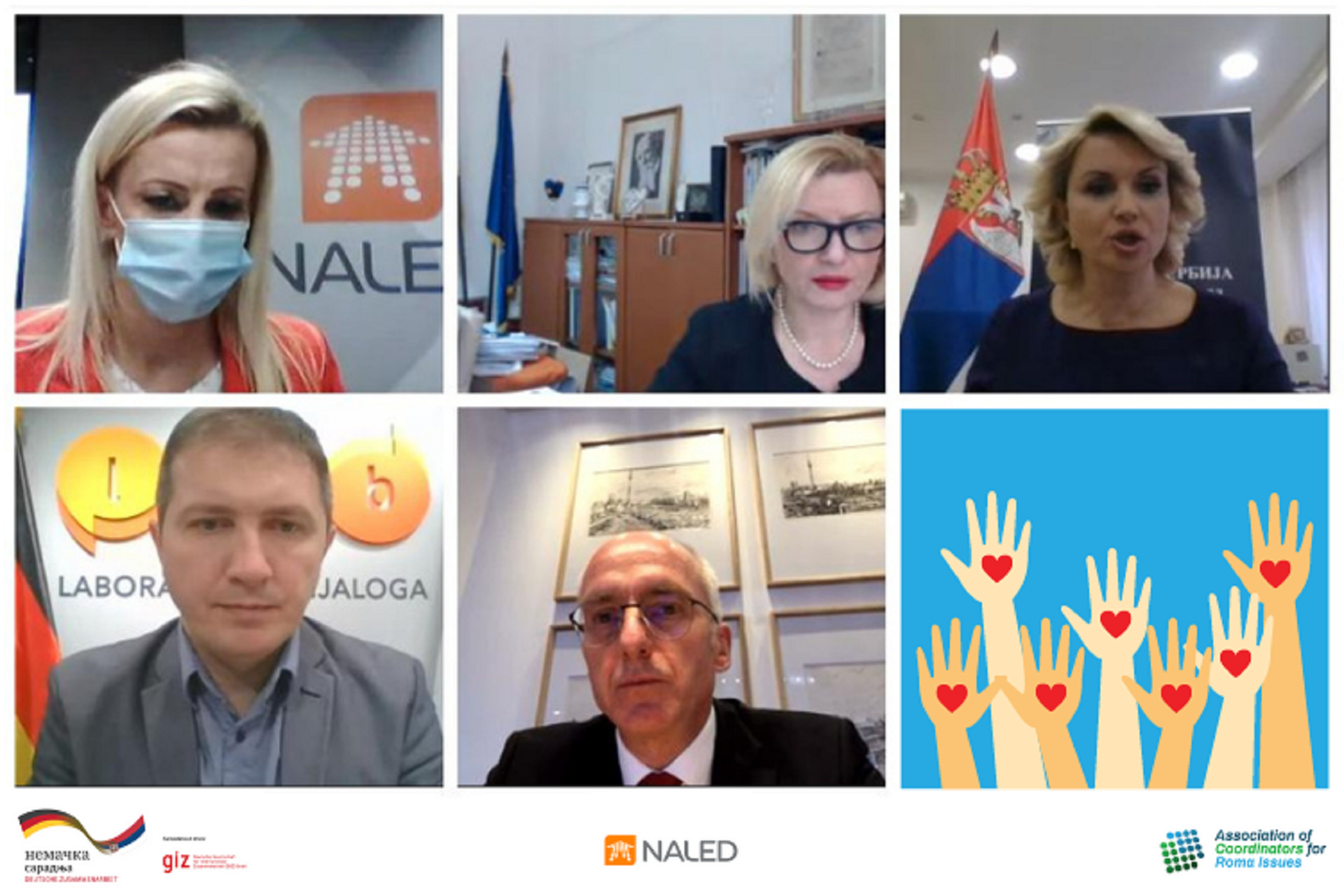Four more days receiving work applications for work engagement of persons from marginalized groups in six cities and municipalities - Together for the community
In order to mitigate the negative consequences of the COVID-19 pandemic and improve the living conditions of marginalized groups, in six cities and municipalities, the implementation of the measure of work engagement was initiated by piloting the concept "Cash for Work" - "Together for the community". This concept incorporates the needs of the target group, their capacities and resources, in order to achieve a certain social interest of the local community. The measure of work engagement "Together for the community" is implemented by the German organization for international cooperation GIZ, together with NALED and the Association of Coordinators for Roma Issues.
Roma, returnees, single mothers, women victims of violence, people with disabilities, the unemployed for more than a year and persons from other marginalized groups can apply for the work engagement program until March 20 - Together for the community and some of the offered jobs. They will be engaged for three to four months in the period April-August, and public institutions and civil society organizations will be in the role of employers.
- Although the current epidemiological situation has affected the economy, its great negative impact is especially expressed on vulnerable groups, whose economic status has been further weakened. As a sign of solidarity, we and our partners have launched a measure of work engagement in six local governments - Vranje, Aleksinac, Pirot, Krusevac, Kragujevac and Subotica. It is envisaged that 210 people will participate in the work engagement "Together for the community". In this way, we will provide income for the most endangered, but at the same time through the implementation of works of public importance contribute to improving the quality of life in local governments participating in the program - says Robert Bu, team leader of the German development cooperation project "Inclusion of Roma and other marginalized groups in Serbia".
In addition to the monthly fee in the net amount of 28,000 dinars for 160 working hours, tax and social security contributions will be paid for the program participants. They will also be provided with mentoring support by local mediators, training for work organized by the employer, and training for introduction to work organized by project contractors. In addition, they have at their disposal the necessary work equipment, protective equipment for prevention from COVID-19, and assistance packages with food products, hygiene and disinfectants.
Before their work engagement, members of marginalized groups will go through training for active job search - writing a resume (CV) and gaining skills on how to look for and apply for a job. All interested in participating will be able to apply by sending a completed application form. For help, they can contact the local mediators in their places of residence or NALED contact center at 0638658605 and e-mail address zajednozazajednicu@naled.rs. The form can be downloaded from the NALED website, at the counters of city and municipal administrations and NES branch offices.
The measure of work engagement "Cash for Work" (Together for community) during the COVID-19 pandemic is part of a wider project of German development cooperation "Inclusion of Roma and other marginalized groups in Serbia" implemented by GIZ. The implementation of the measure of work engagement with the support of GIZ is carried out by NALED within the project "Improvement of living conditions of Roma and other marginalized groups in 18 LGUs", together with the Association of Roma Coordinators.



